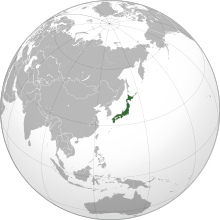Abe’s Return In Japan And The “Game Of Thrones” In Asia – Analysis
Shinzo Abe’s win in the Japanese general Presidential elections is the latest development in the ongoing strategic drama unfolding in Asia. It opens a few interesting scenarios which might have long term consequence in the Asia – Pacific region. Here in this article we try to analyse some immediate effects of Abe’s return.
Japan was ruled by Liberal Democratic Party, almost for the most part of the last half century. LDP might be considered to be a right of center in the Japanese political spectrum, although for the most part of the last decade post 9/11 it shifted steadily right. Junichiro Koizumi was the first PM of Japan to have his troops take part in an operation far from the shores of Japan, in Iraq, in solidarity with the United States led force to topple Saddam.

Even though they didn’t take part in any active combat operation, the Japanese forces proved invaluable to the US led coalition, and was a steady support in face of dwindling popularity of George W. Bush. However after Koizumi much hope was there on young Shinzo Abe when he came to power for the first time. Unfortunately he resigned after a turbulent time at the helm, with massive corruption, and his chronic stomach ailment which was exacerbated due to stress. One of his major achievements was the Quadrilateral Security Dialogue (QSD) in 2007 with India, Australia and United States. The QSD was initially formed with Abe receiving support from Dick Cheney, VP of USA, Manmohan Singh, PM of India and John Howard, PM of Australia, and was resumed after Julia Gillard came to power.
Even though QSD remains a loosely bound informal pact between the four powers, on its part it started an idea of an alternative power structure based on democracy which might lead to the balancing of China. That way it might be called as the precursor to the US Asia Pivot.
Situation is a lot different now than in 2007, and went downhill in Asia. With the US Asia Pivot, Chinese belligerence in East China sea and South China sea, the return of a more matured and more hawkish Abe might pose a few interesting scenarios. For China, this situation is similar to what might be called a “Security Dilemma” in International Relations.
With the growing military modernisation in China, its Asian neighbours, big or small will also go to militarization or alliance formation with United States, which will further cause China to increase the pace of modernisation and increase the defence budget. Already there is massive arms race in effect in India, Japan, Singapore, Taiwan, Philippines and Vietnam. China further alienated itself with its heavy handed treatment of its littoral neighbours in South China Sea, sending warships and surveillance planes near Senkaku/Diaoyu islands, and stamping disputed territories in Visas.
It is still too early for analysts to understand the long term plan of China, but one thing is clear, China has got the will, ever growing clout and military muscle, and most importantly patience, to play this game of chicken.
Japan on the other hand needs to understand that it lacks the economic clout and military muscle, as well as political capital for this game of brinkmanship. It is highly doubtful how much Shinzo Abe will confront China and how much of his pre-poll rhetoric will actually turn to reality, even though Japanese public opinion is turning sharply right. It is safe to assume that the first few years of Abe’s rule, now that he will be in a considerably stable position than his predecessors due to his landslide victory, will be spent on stabilizing Japan’s economy from a quarter century old recession, unless ofcourse there is some sudden turbulence in the geo-political situation of East Asia.
Even if the economy stabilizes, Japan should try to balance China while engaging with the rest of likeminded countries, forming military alliances with India, Vietnam, Australia, New Zealand and Philippines, normalizing relations with South Korea, and engaging United States as an “offshore balancer” in the region. Forming a military alliance would be instrumental if Japan needs to increase its clout in the region, and with the slow pro-Japan tilt in countries like Philippines, who were historically occupied by Japan, this is an ideal opportunity for Japan to step up the game as a great power, forming and negotiating alliances and curving out own interests.
As for India, Australia and New Zealand, the choice is a bit more complicated. The time for dithering, might finally be coming to an end, and the three countries should need to choose sides in the near foreseeable future. Both India and Australia has massive bilateral trade with China, but on the other hand both can see how China might use trade dependence as economic weapon, as evident from the latest Senkaku island episode.
India, Australia, and New Zealand, having a common Anglo-Saxon rule of law, a commonwealth legacy, and liberal democratic political systems, needs to finally decide on which side it should step in. Only time will tell how these powers decide to act, but as Professor Walter Russell Mead opined, the greatest “game of thrones” of our lifetime, and possibly this century, is already on, and we are part of it, whether we like it or not.
